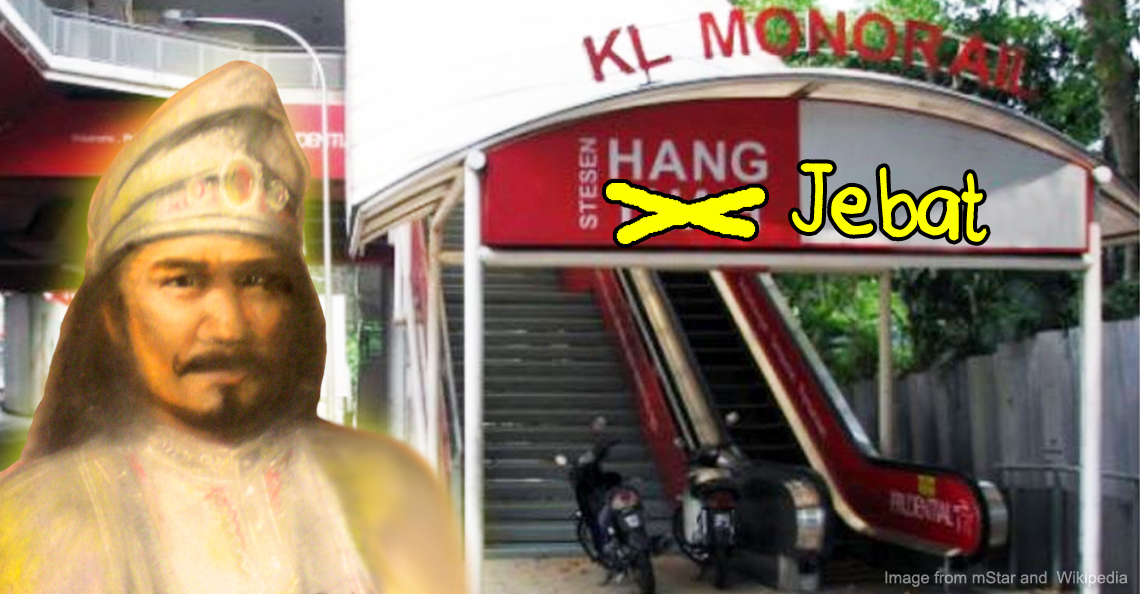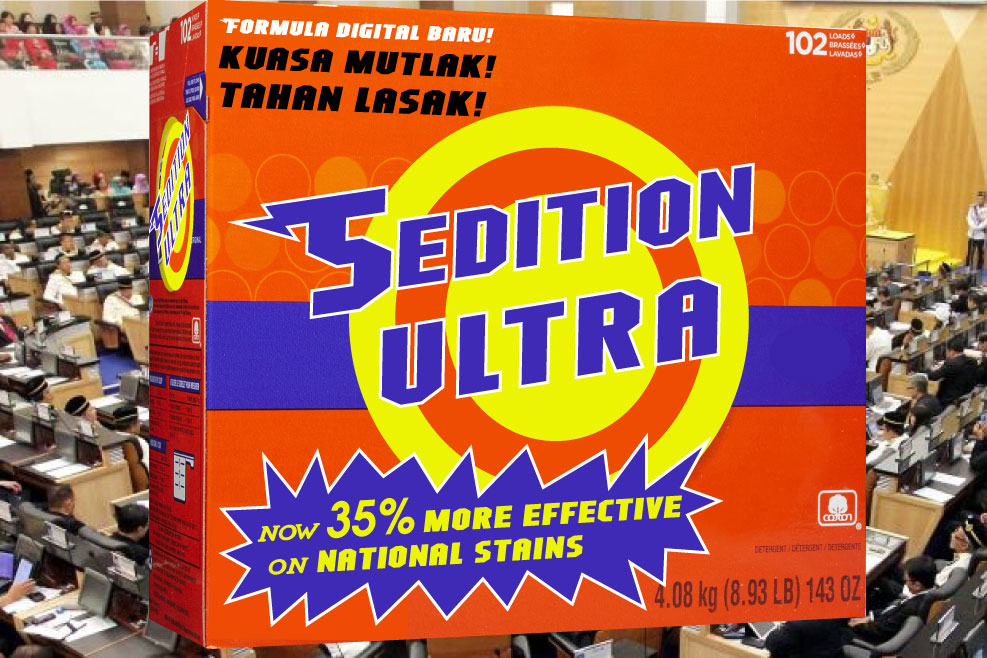5 seriously scary things about Malaysia’s new Anti-Terrorism Act
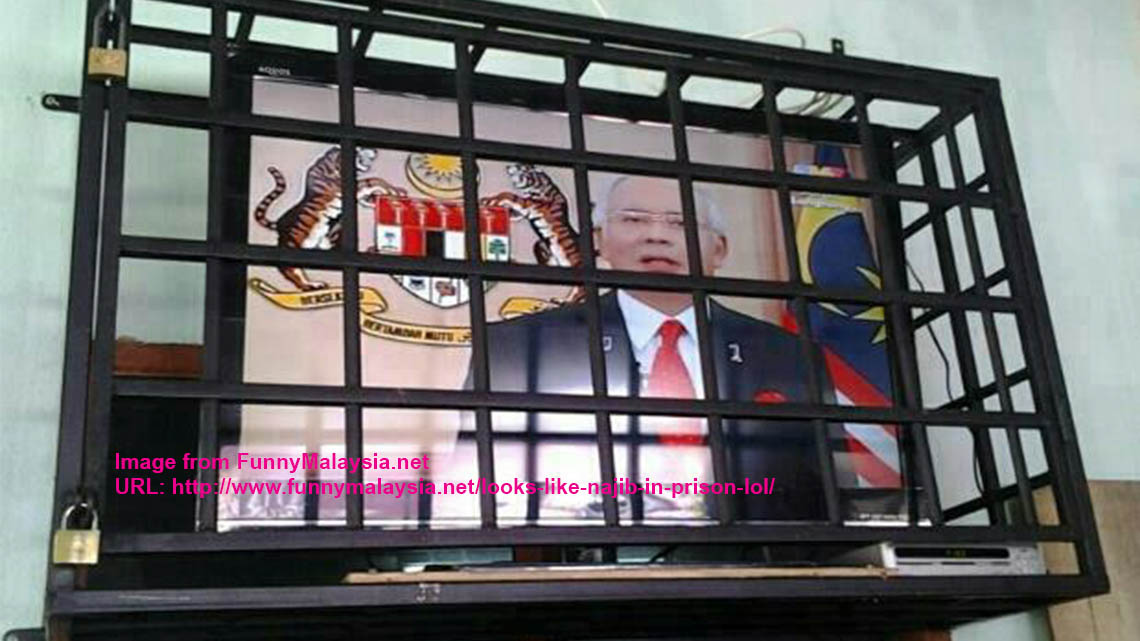
- 1.1KShares
- Facebook1.1K
- Twitter2
- LinkedIn1
- Email1
- WhatsApp2
In 2011, PM Najib officially threw out the Internal Security Act (ISA) as part of his reform initiative when he came into leadership. This came as good news to many since the ISA was seen by NGOs and human rights activists as an “draconian act that has contributed to serious human rights abuses.” It was introduced in 1960 to counter the Communist movement in Malaysia, though it had already existed as a different law under British rule.
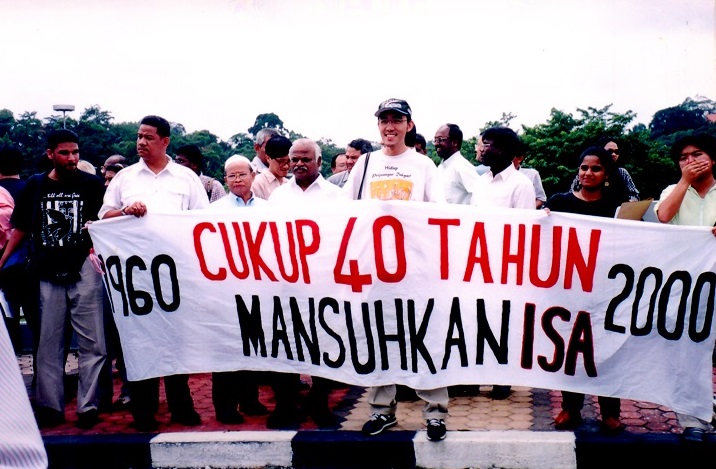
The ISA became particularly infamous when it was used in a series of arrests against media and political figures called Ops Lalang in 1987 which saw 106 people being sent to Kamunting detention centre although we were unable to find evidence that any of those arrested had been Communists. Many commended the Najib administration for having the courage to finally get rid of this Act after years of campaigning. Looks like all was good!
Unfortunately, it looks as if the Najib administration has re-introduced what its opponents are calling the “new ISA” in the form of the Prevention of Terrorism Act (POTA), which was passed at about 2:30am on April 7th by a 79 – 60 vote after hours of debate and requests by certain MPs for amendment.
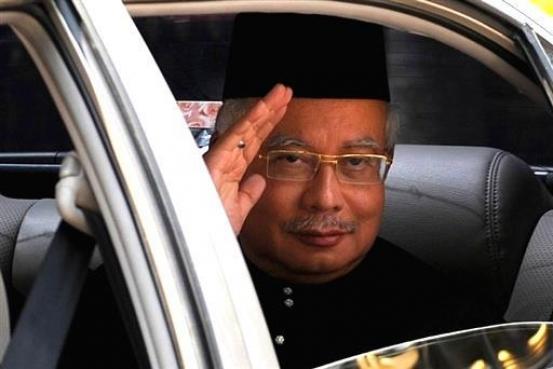
So is POTA a new Internal Security Act?
To give a very brief background, the ISA was a preventive law that was passed to counter the communist insurgency during the early days of Malaysia’s independence. It was “replaced” with the Security Offences (Special Measures) Act 2012 (SOSMA), which has recently been considered “insufficient” in light of the growing threat of Islamic Terror groups such as ISIS.
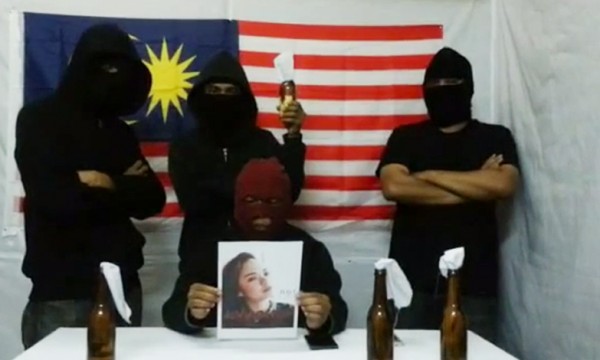
We bolded the word preventive in the previous paragraph because this was the main setback of abolishing ISA – something PM Najib has since acknowledged. What this means is that the current laws force authorities to wait for something to happen before they can take action – which in this case could be a meeting to discuss a bomb plot on Malaysian soil, or the actual carrying out of a bombing. It also doesn’t allow the authorities to detain suspects long enough for proper investigation to occur.
Also, unlike the ISA, POTA isn’t a standalone law. It also involves amendments (adjustments) to existing laws; namely the Penal Code, Prevention of Crime Act, Criminal Procedure Code, Prison Act, and SOSMA. It also introduces a new law called Special Measures Against Terrorism in Other Countries which allow Malaysian authorities to take action against those participating in terrorist activities in other countries. While this doesn’t seem a big deal to most of us, it might be an issue if there is a need to repeal POTA due to the complication of having to re-amend the other Acts.
We met up with a parliamentary think-tank called Kajian Politik Untuk Perubahan (KPRU), whose director Ooi Heng shared some of the more disturbing parts of POTA with us (like the point above), such as…
Please note that due to how new this Act is, there will be a lack of links to verify the information that we got. However, we do have a very legit-looking copy of the POTA Bill in both English and BM on Dropbox (Thanks to Eric Paulsen of Lawyers for Liberty) which you can download and check out for yourself. POTA – Bahasa Malaysia | POTA – English
Let us know if anything’s incorrect and we’ll fix it. Just don’t sediton us, k?
1. They don’t need courts to find you guilty

In fact, they really won’t be needing the courts at all.
Ooi Heng tells us that while they can arrest and detain you without trial, a court order is still required within the first 24 hours of the arrest. However this court order only needs to come from the magistrates court rather than the High Court, something which Ooi Heng and some other politicians have questioned, since the High Court is better fitted to make such decisions (The magistrates court is basically a court for less complex cases and has less power). the Deputy Home Minister has mentioned that this was not viable since the High Court already has its hands full.
The good news is that their initial detainment period without trial is SHORTER compared to ISA, which is 60 days. Under POTA, you can be detained for 21 days, and if the board feels it’s needed, another 38 days.
So hey, 59 is less than 60. Progress!
You might have read in the news that POTA “doesn’t allow for judicial review,” but what does that mean exactly? What it means is that the court cannot change or review any of the decisions made by the POTA authorities (more on that below) except in how strictly they followed procedure. In even simpler terms, this means that your guilt or innocence is 100% determined by the POTA authorities. Speaking of which….
2. All this is decided by just eight people
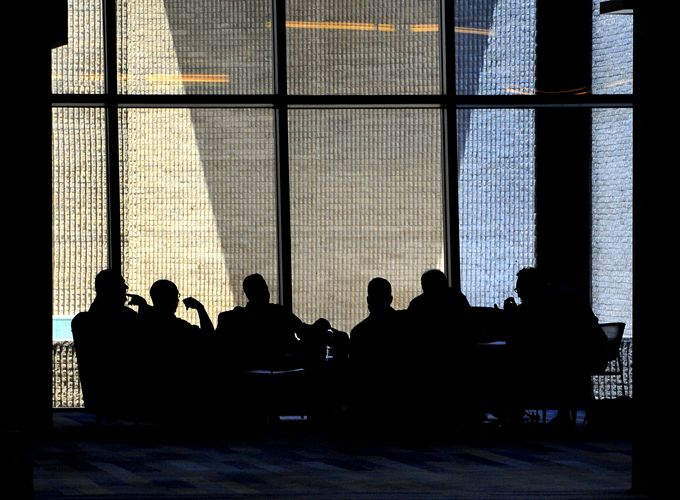
Yep. POTA will operate within it’s own ruling board of 5-8 members appointed by the Yang di-Pertuan Agong and reporting to the Home Minister.
What happens is that an Inquiry Officer – more or less an investigator appointed by the POTA board – will do his research on a suspect and submit a report to the Board. If the Board determines that there’s enough reason for an arrest, the cops are called to arrest the suspect who is then handed back to the Inquiry Officer for questioning, detainment, and all that other fun stuff.
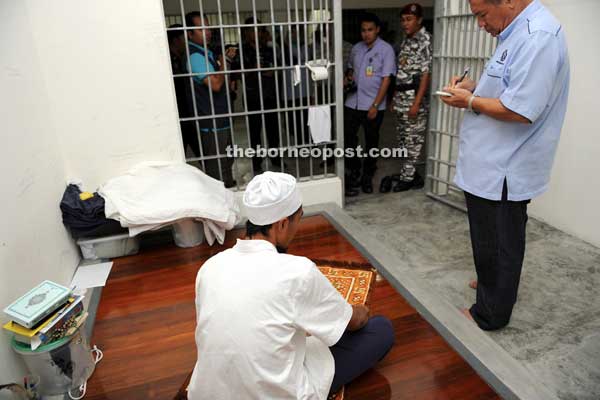
Again, we don’t know what the procedure would be like yet, but if the questioning and investigation is handled by (what sounds like) the same Inquiry Officer, we wonder how valid a confession would be without any external witnesses present – like what would prevent an Inquiry Officer from literally writing a suspect’s confession other than the officer’s integrity and professionalism?
This autonomy has caused some to question the power given to the board, and by extension, the Home Minister since they will essentially define what is a terrorist group and what’s not. If you take into account that you could be indefinitely held without trial, it’s a pretty scary thought.
On the bright side, you could be released with the “minor” condition that…
3. You might be watched (and have to wear one of these) for up to 5 years
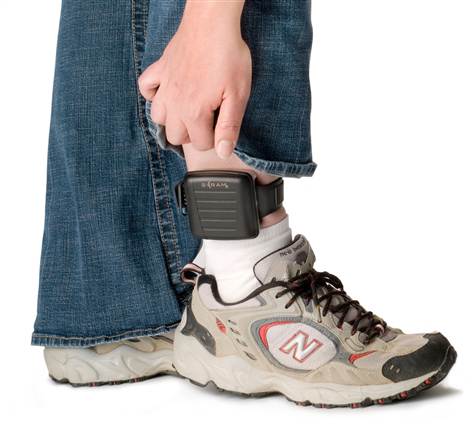
Okay, so after the 21 or 59 days that you can be detained under POTA, you’ll be met with 3 possible outcomes:
- Be cleared and released
- Be placed under a detention order for 2 years, which can be refreshed indefinitely
- Be released but under a restriction order for 5 years, which can be refreshed indefinitely.
We’ll be discussing the restriction order here.
Ooi Heng tells us that a restriction order means that if the Board can’t be sure that you’re a terrorist but would like to still keep an eye on you just in case, they can place you within an area where you will be free to move around (but cannot leave), but under continued observation. You’ll be wearing an ankle bracelet (pictured above) so they know where you are at all times and you’ll have to report to the nearest police station whenever required.
Where they’ll place you is “any state, district, mukim, town or village;” which isn’t vague at all considering…
4. No one will know where they’re keeping you (not even your lawyer)

This was what we personally found the most scary of everything we’ve heard during our interview. With the ISA, it was more than common knowledge that detainees were held in Kamunting Detention Centre, where family members and lawyers were allowed to visit inmates under specific conditions.
However, visitation may be a little harder under POTA since they won’t be able to find you. Ooi Heng tells us that the Board (and again by extension the Home Minister) can place you anywhere they consider suitable.
5.Your political activities will not get you in trouble, but only if they are allowed by the government (whaaaa…!?)

POTA advocates, including the Prime Minister himself, have stressed time and time again that POTA will not be used to persecute political activity, with Deputy Home Minister Datuk Seri Wan Junadi outright saying that the Home Minister does not have executive power over the Act; which, just sayin’, is contrary to all our previous points. He also says that
“…criticisms that Pota is the twin of the ISA is baseless, inaccurate and untrue.” – Datuk Seri Wan Junaidi, as quoted in The Malaysian Insider
There is, in fact, a specific clause within the Act that addresses this in Section 4(3) which explicitly states:
“No person shall be arrested and detained under this section solely for his political belief or political activity”
However, two lines down in Section 6, it mentions that the activities have to be under the umbrella of a registered political party or society. This essentially means that groups such as Bersih, who are not registered, MAY be investigated under POTA.
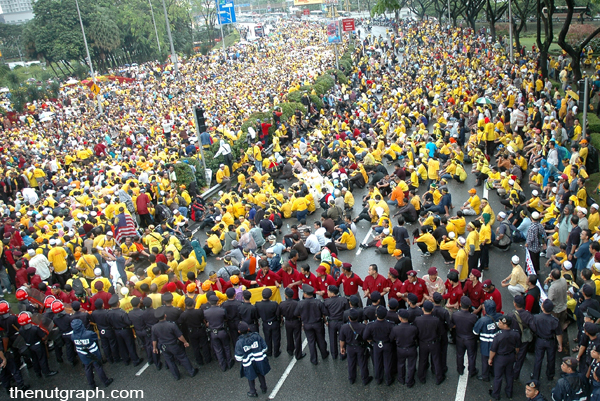
Without POTA, Malaysia isn’t safe!
Some might say that POTA is a necessity to ensure the continued safety of the country, and to a certain extent, we don’t disagree. Whether coincidental or not, 17 suspected militants were arrested as the POTA bill was being discussed, along with notes on bomb-making and plans to attack police stations and army camps to gather weapons. If you’re thinking “Nahhhh… how would they know how to use weapons?”, well, two of them were fighting in Syria and another two were from the Army.
We were also reminded of an incident in 2000 where a local militant group called al-Ma’unah stole assault weapons from an Army camp, which led to a shootout with the authorities. We’re not talking about handguns here too, btw… we’re talking about heavy machineguns, rifles, and grenade launchers.
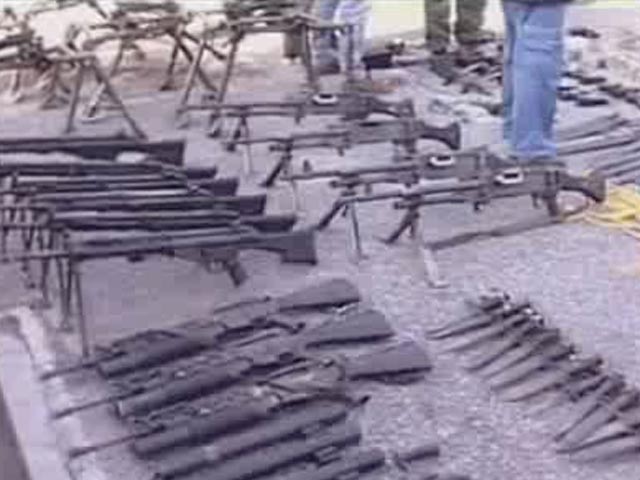
So in this sense, we can’t discount the need to protect the country and it’s citizens from a potential attack, no matter how slim the chances. However, the question goes again: Do the advantages of POTA in keeping the country safe from terror threats outweigh the potential for misuse?
ISA for Communists, POTA for Terrorists
Does anyone else think it’s a big coincidence with all this terrorists in Malaysia related news, and then this law gets passed so quickly, AND the recent sedition arrests by the IGP which mostly had to let its detainees go?

That aside, let’s just put it out there… Malaysia isn’t the only country with a preventive detention law. The most obvious comparison would be America’s Guantanamo Bay (Gitmo), under the Patriot Act. Here’s an article that we previously wrote comparing the Patriot Act to SOSMA. However, Ooi Heng did point out that the no American citizen can be sent to Gitmo so yea… might not want to make this comparison in the future, just sayin’.
Considering that the POTA has already been passed, we’ll just have to wait and see how it pans out in the near future. In the meantime though, here are a couple of quotes we’d like to share and compare:
ISA:
“The ISA is a measure aimed at preventing the resurgence of the earlier communist threat to the nation… During my term of office as Prime Minister, I made every effort to ensure that pledges of my predecessors, that powers under the ISA would not be misused to curb lawful political opposition and democratic citizen activity, were respected.” – Tun Hussein Onn, as quoted in Aliran.
POTA:
“The government has no intention of using the new act for political purposes. … We will place it under a credible body so that only those truly involved in terrorism can be detained under the new act. That way, we can guarantee Malaysia will continue to be safe,” – Datuk Seri Najib Tun Razak, as quoted in The Malaysian Insider.
- 1.1KShares
- Facebook1.1K
- Twitter2
- LinkedIn1
- Email1
- WhatsApp2

